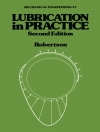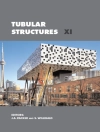This book provides a comprehensive overview of active anti-roll bar systems on heavy vehicles as one of the most effective solutions for improving the roll stability of these vehicles. Due to the characteristics of these vehicles with heavy loads and high center of gravity, the possibility of roll instability occurs frequently and causes serious consequences for human life, vehicles, and traffic infrastructure. The book gives readers an in-depth survey of the roll instability characteristics of heavy vehicles such as single-unit trucks with rigid and flexible frames, and tractor semi-trailers. It then introduces an active anti-roll bar system, the electro-hydraulic actuators which use control methods such as LQR optimal and H∞ robust controller design. This work introduces a new control method, which is a combination of robust control with the linear parameter varying system (H∞/LPV). The validation of the new hybrid method is carried out using the nonlinear truck model from the Truck Sim® software to assess the roll stability of heavy vehicles in order to limit the rollover accident. A number of examples are provided to illustrate the research results, which helps the readers have a practical and easy approach that can be applied to other active anti-roll bar systems for most forms of transport vehicles in general. This book caters to academics and practitioners who are interested in active anti-roll bar systems for the typical heavy vehicle available worldwide.
قائمة المحتويات
Introduction and Motivations.- Vehicle modeling using active anti-roll bar system.- LQR optimal controller design for active anti-roll bar system.- H∞ robust controller design for active anti-roll bar system.- H∞/LPV controller design for active anti-roll bar system.- Validation of the active anti-roll bar controllers by using Truck Sim® software.- Conclusions and Outlook.
عن المؤلف
Vu Van Tan was born in 1985 in Namdinh, Vietnam. He received his B.E. and Master’s degrees in mechanical engineering in 2008 and 2012, respectively. He got a Ph.D. degree at Gipsa-lab, Grenoble Alpes University, under the supervision of Professors Olivier Sename and Luc Dugard in 2017 with the thesis title ‘Enhancing the roll stability of heavy vehicles by using an active anti-roll bar system.’ From 2008, he has been a lecturer at the Department of Automotive Mechanical Engineering, Faculty of Mechanical Engineering, University of Transport and Communications (UTC), Hanoi, Vietnam. From 2021, he is an associate professor in this department.
His research is focused on the practical applications of optimal control, robust control, LPV control, and vehicle dynamics systems. He has a strong international collaboration with the Gipsa-lab, University Grenoble Alpes, France; the Budapest University of Technology and Economics, Hungarian Academy of Sciences, Hungary; University POLITEHNICA of Bucharest, Romania; Osaka University, Japan.
Olivier Sename received Master’s degree in 1991 and Ph.D. degree from Ecole Centrale de Nantes in 1994. He received the prestigious Habilitation à Diriger des Recherches from INPG in 2001. He served as an associate professor in 1995 and from 2006 is a professor at the Grenoble INP—UGA, within the GIPSA-lab.
His main research interests include theoretical studies in the field of linear systems (time-delay systems, linear parameter varying systems), about control/real-time scheduling co-design, as well as robust control for various applications such as vehicle dynamics, automated vehicles, engine control, and energy systems. He has collaborated with several industrial partners (Renault, JTEKT, SOBEN, Delphi Diesel Systems, Saint-Gobain Vetrotex, PSA Peugeot-Citroën, ST Microelectronics). He is responsible for international bilateral research projects (Mexico, Hungary, Italy, Spain, Vietnam).
Peter Gaspar is the head of the Systems and Control Laboratory, Institute for Computer Science and Control (SZTAKI), Hungarian Research Network (HUN-REN). He is also a full professor at the Department of Control for Transportation and Vehicle Systems, Budapest University of Technology and Economics (BME). He received both the M.Sc. and Ph.D. degrees from the BME in 1985 and 1997, respectively, and the D.Sc. degree in control from the Hungarian Academy of Sciences (MTA) in 2007. Since 2022, he has been a member of the Hungarian Academy of Sciences. Between 2019 and 2023, he was a member of the Steering Committee of Eötvös Loránd Research Network. He is also a chair of the IFAC Hungary National Member Organization and a member of the IFAC Automotive Control and Transportation Systems Technical Committees.
Do Trong Tu was born in Namdinh, Vietnam, in 1998. In early 2020, he got an International Internship Program at Gipsa-Lab at Grenoble INP, France, supervised by Professors Olivier Sename, Luc Dugard, and Vu Van Tan. He received a B.E. degree from the UTC in Aug 2020. In 2023, he completed his Master of Science in Mechanical Engineering at Myongji University, South Korea.
He participated in Transportation Traffic Construction and Mechanical Joint Stock Company, simultaneously with the Automotive Research and Training Support Center, Hanoi, Vietnam as a research engineer in 2020. Since 2021, he has worked as a master/researcher at the Advanced Automotive Laboratory with energy management systems for fuel cell electric vehicles. Currently, he is working as a lecturer at Electric Power University in Hanoi, Vietnam.
His research interests are vehicle dynamics and control; energy management systems for XEVs, including BEVs, HEVs, and FCEVs.












